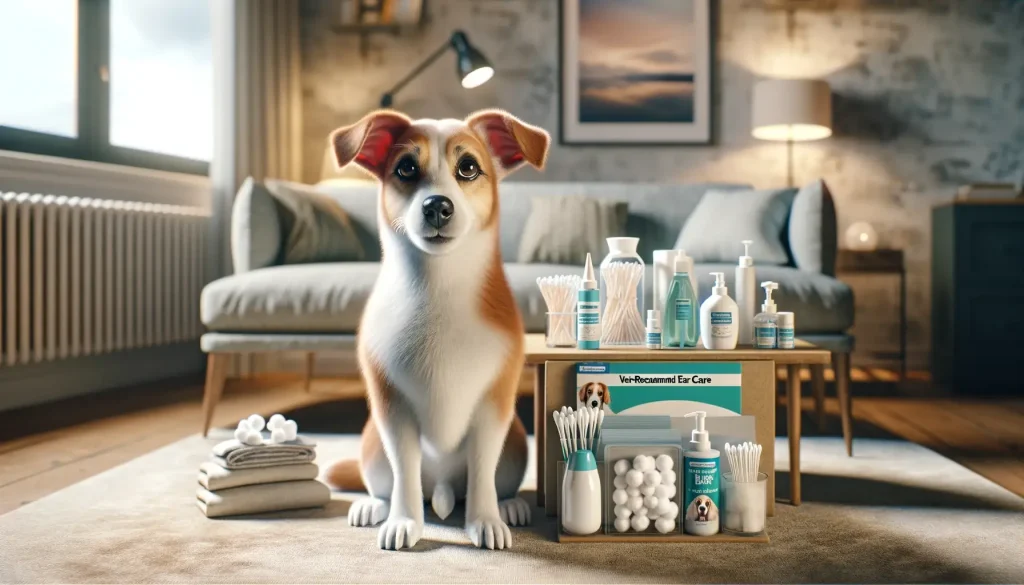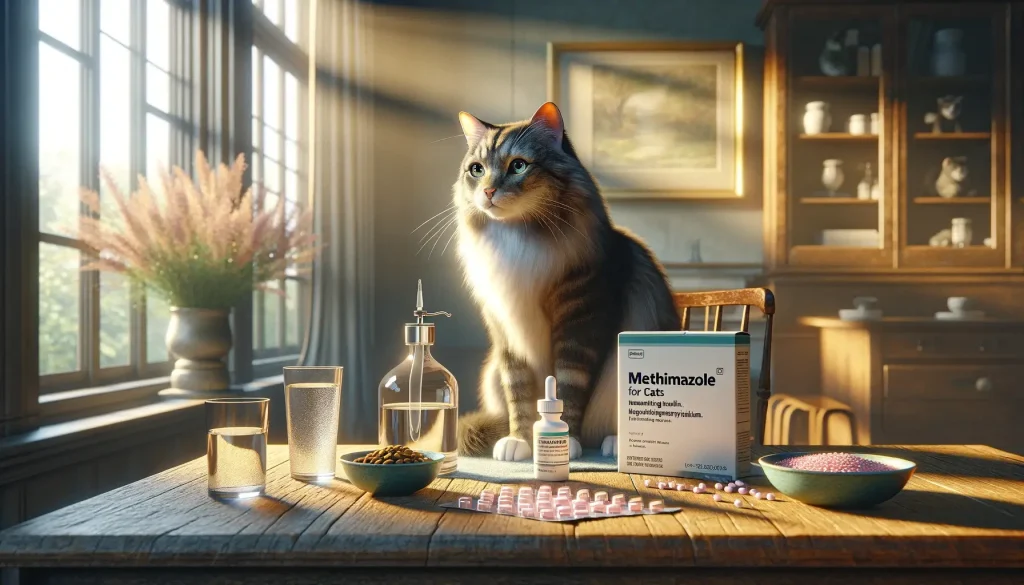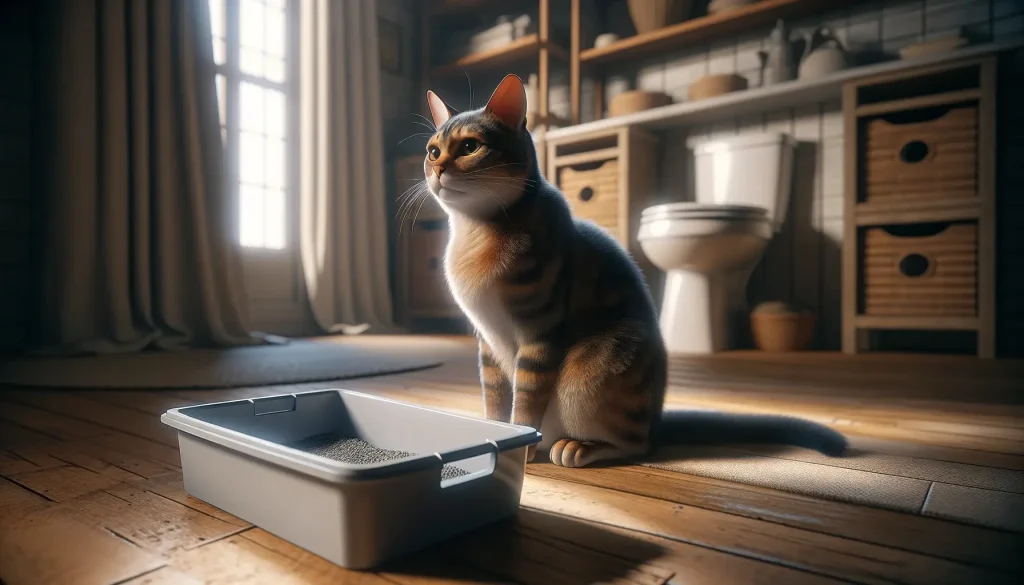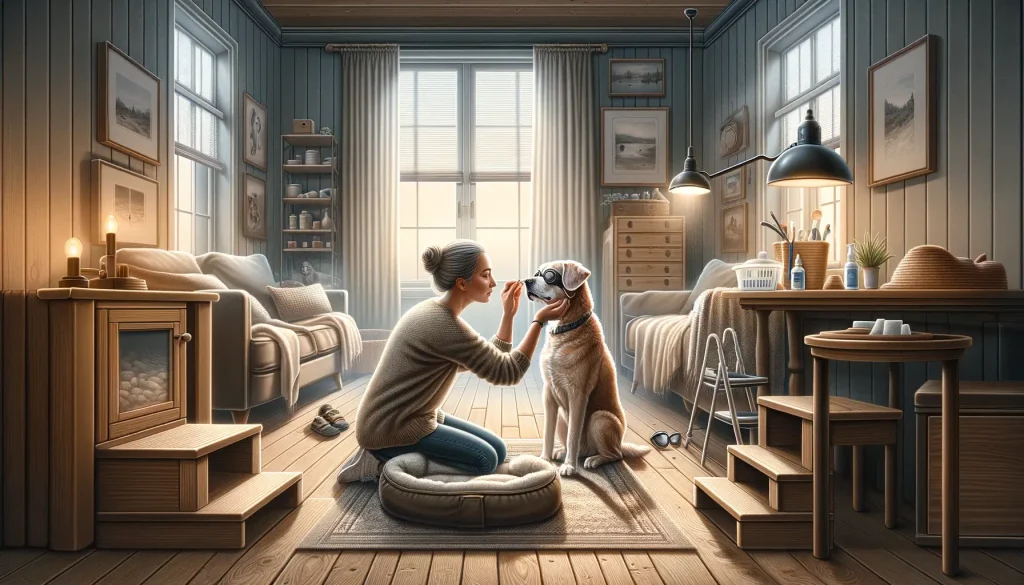
Causes and Remedies for a Cloudy Dog Eyes
Cloudy eyes in dogs can catch any pet owner off guard. It’s noticeable when the bright, lively eyes of your canine companion suddenly seem dull and misty. This condition affects many dogs, especially as they age. Let’s delve into the main causes of cloudy eyes in dogs and explore practical care strategies.
Cloudy eyes in dogs can result from various factors, ranging from natural aging processes to serious health conditions. Noticing a change in your dog’s eye clarity is often the first step in addressing potential health issues.
The most common causes of cloudy eyes in dogs include:
- Cataracts: Often related to aging, diabetes, or genetics, cataracts can cause the eye’s lens to become opaque.
- Glaucoma: Increased pressure in the eye can lead to cloudiness and, if not treated promptly, significant visual impairment or blindness.
- Nuclear Sclerosis: This aging change affects the lens’s density, leading to a bluish, cloudy appearance. It’s a normal part of the aging process and doesn’t significantly impair vision.
- Uveitis: Inflammation inside the eye can cause clouding, redness, and pain, often indicating an underlying disease or injury.
Care tips for managing cloudy eyes in dogs include:
- Schedule regular veterinary visits for eye examinations.
- Administer prescribed medications accurately to address or manage specific conditions.
- Maintain a healthy diet rich in antioxidants to support overall eye health.
- Use protective eyewear for dogs when outdoors to prevent injury and exposure to harmful UV rays.
If your dog’s eyes become cloudy, it’s essential to consult with a veterinarian. They can diagnose the specific cause and recommend the best treatment plan. While conditions like cataracts and glaucoma require medical intervention, others like nuclear sclerosis might simply require monitoring and adjustments in your dog’s care routine to ensure they remain comfortable and happy.
At-Home Strategies for Dogs with Cloudy Eyes
When our furry companions start to show signs of aging, such as cloudy eyes, it can be a bittersweet reminder of the years they have spent with us. These changes, as seen through the less vibrant eyes of our beloved pets, signal that it’s time to adjust their care routine to maintain their quality of life.
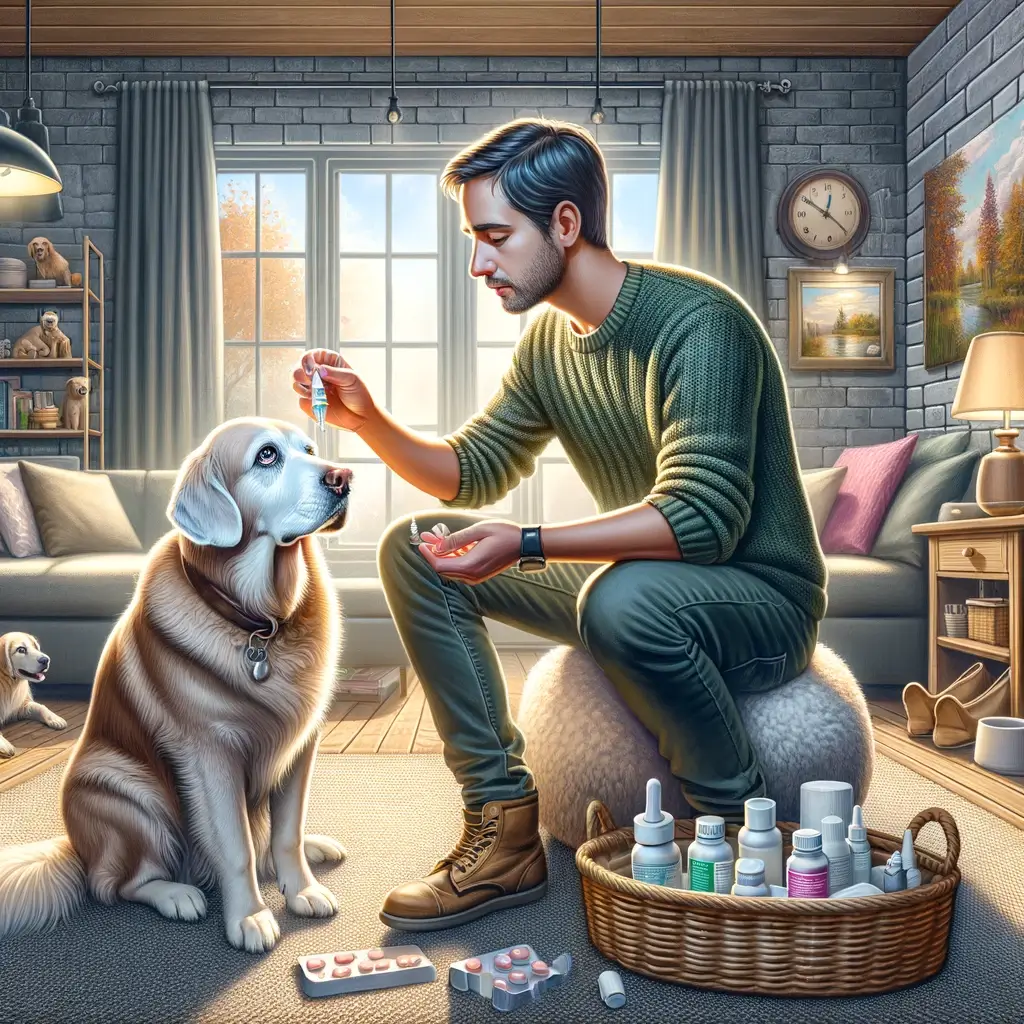
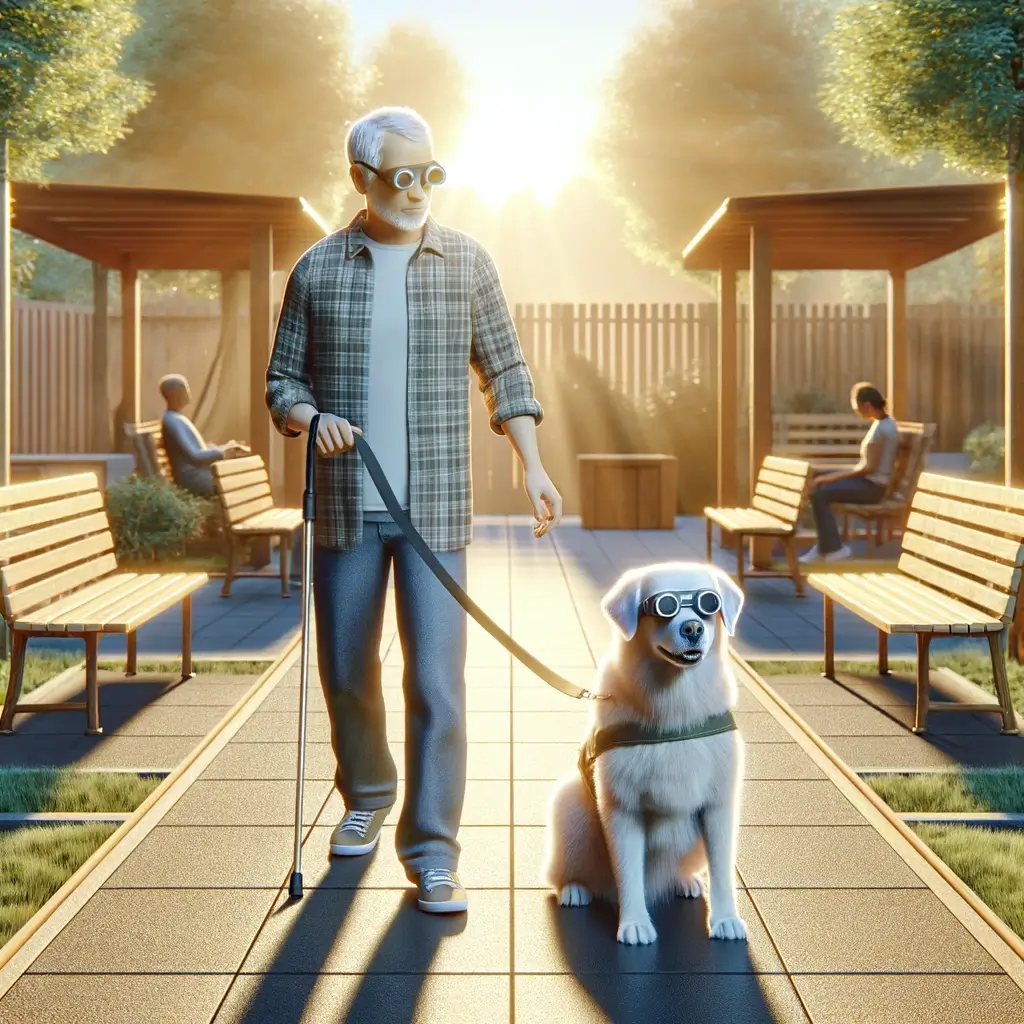
Here are some practical home care strategies for dogs with cloudy eyes or those experiencing age-related changes:
- Avoid unnecessary stress by maintaining a consistent daily routine. This helps comfort dogs who may struggle with vision changes or hearing loss.
- Keep paths clear of obstacles to prevent injuries. This is crucial for dogs with vision impairment due to cloudy eyes.
- Use natural cues like hand signals or physical guides to help your dog understand commands or directions, especially if they are no longer able to hear you well.
- Incorporate softer bedding and accessible resting spots to support aging joints, making it easier for your dog to relax comfortably.
- Adapt exercise routines to match your dog’s current energy levels and mobility. Shorter, gentler walks can help manage health without overexertion.
- Find creative ways to administer medication. Mixing medicines with peanut butter or lunchmeat can make the process easier for both pet and owner.
- Invest in pet steps or ramps to assist your dog in getting onto couches or beds, preserving their independence and comfort.
Understanding and adapting to your dog’s changing needs due to cloudy eyes or aging signs is a testament to the deep bond shared between pets and their owners. Our love for them doesn’t diminish as they age. Instead, it grows stronger as we find new ways to support them through their golden years.
When to Seek Veterinary Care
Cloudy eyes in dogs can be alarming. As pet owners, understanding when to take action is crucial. Some changes might be part of aging, but others signal health issues needing prompt attention. Let’s break down when a vet visit becomes necessary for a dog with cloudy eyes.
First, observe. Has your dog’s behavior changed? Maybe they’re bumping into furniture, indicating a vision problem. Are they less responsive, not hearing you come home, or struggling to catch cues they once knew? These changes, alongside cloudy eyes, suggest it’s vet time.
Pacing in the home, as if unsettled, can be another sign. Dogs often pace when in discomfort or unable to see well. Coupled with cloudy eyes, this behavior warrants a vet visit.
Moreover, if your dog used to be excited at your return but now remains indifferent, consider their hearing and vision. Cloudiness in their eyes affecting their interaction with the world is a clear sign to seek veterinary advice.
Daily routines changing, like needing more help or shorter walks, also call for a check-up. When a robust dog now hesitates before jumping onto the bed or couch due to poor vision or discomfort, it’s time.
Finally, difficulty in administering medication is common in older dogs. But when paired with cloudy eyes, it adds to the list of reasons for a vet visit. Your vet can provide tips for medication management and assess the cloudiness cause.
Table 1. Signs to Seek Veterinary Advice for Cloudy Eyes
| Behavior Change | Possible Reason | Action |
|---|---|---|
| Bumping into objects | Vision impairment | Schedule vet visit |
| Less responsive to sounds | Hearing loss | Seek veterinarian advice |
| Pacing at home | Discomfort or confusion | Consult with vet |
| Need help with mobility | Vision loss or pain | Vet check-up recommended |
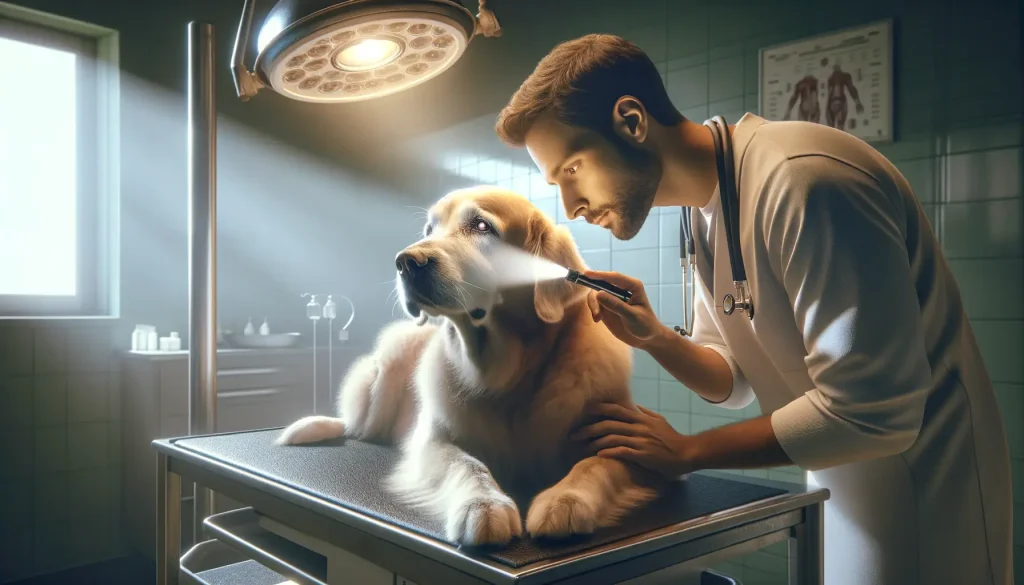
Caring for Senior Dogs with Cloudy Eyes
For those caring for dogs showing signs of aging, especially those with cloudy eyes, here are some adjustments that can make their lives more comfortable:
- Implement a simpler communication method, like hand signals or physical guides, for hearing-impaired dogs.
- Modify your home to accommodate their needs, ensuring beds and couches are accessible with steps or ramps.
- Adjust daily routines to match their changing energy levels, opting for shorter, more gentle walks.
- Find innovative ways to administer medication, making it a stress-free process for both you and your dog.
- Keep their sleeping area comfortable and accessible, accommodating any mobility issues they may face.
Beginner Guide to Raising Quail at Home
What are the Signs of a Dog Concussion?
What Causes Your Dog’s Ears to Smell Bad?
When your dog’s ears start to emit an unpleasant odor, it might leave you puzzled…
Methimazole Treatment for Cat Hyperthyroidism
Methimazole plays a crucial role in managing feline hyperthyroidism, a condition marked by an overactive…
Got Hummingbirds in your Backyard? Here’s How to Care for Them.
Why Does Your Cat Pee Outside the Litter Box?
Cat’s Litter Box Issues It’s not uncommon for cat owners to face the frustrating dilemma…


